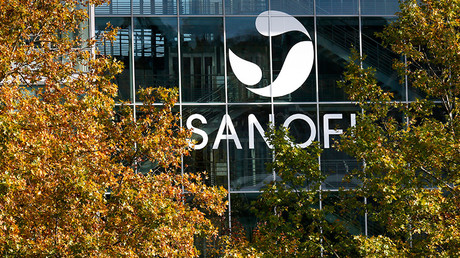Pesticides or random coincidence? Mystery lingers over NEW CASES of babies born with hand and arm defects in Europe
Authorities are at a loss to explain why several babies born in a west German province have similar hand deformities. One hospital, where three such cases were seen, described the baffling phenomenon as “striking.”
With “no nationwide registry” to keep track of deformities, the St. Mary’s Hospital in Gelsenkirchen, near Dortmund, has admitted it is difficult to accurately monitor the situation or establish any kind of pattern.
Three babies were born at the hospital with undeveloped palms and fingers on one hand, between June and September this year. RT has twice contacted both the city administration of Gelsenkirchen and St Mary’s Hospital seeking more information on the situation, but has received no response.
In a public statement, the hospital said it had not seen deformities of this kind “for many years.” It left open the possibility that three cases so close together might simply be a “random accumulation,” but admitted that it found “the brief period in which we are now seeing these three cases” is “striking.”
Could there have been even more?
It seems so. The defects in Gelsenkirchen were highlighted by midwife Sonja Ligget-Igelmund, who said she had been alerted to at least 30 other cases in Germany this year. Her claim prompted authorities in the North Rhine-Westphalia state to begin “very seriously” investigating the reports.
What could be causing the string of unusual malformations? The hospital statement noted that there were no “ethnic, cultural or social similarities” between the three families at St. Mary’s Hospital. The one thing they did have in common, however, is that they all lived in the same locality.
A mere coincidence, or is something else going on?
The case is eerily similar to that of a recent unexplained phenomenon of babies being born with a missing arm in rural regions of France. Three infants were born without arms within a 30km radius of Vitrolles, in the Bouches-du-Rhône region between June and November 2016, while eight were born with the same defect within a 17km radius of Ain.
A nationwide investigation into the medical mystery was repeatedly delayed and ultimately offered no clear “obvious cause” for the malformations, with angry parents complaining that the handling of the situation by French authorities had been “scandalous.”
The investigation did note, however, that all affected pregnancies had occurred in areas where cereal crops were grown, and the director of the malformations registry of the Rhone-Alpes region, Emmanuelle Amar, still believes pesticides and other chemical agents could be the cause. The probability that it is all just a random occurrence is “infinitesimal,” Amar said.
RT also contacted France’s public health body last year, but it offered no further information or clarity on the situation beyond the vague public report.
While German authorities are now investigating the situation, if their probe bears any similarities to the one conducted in France, it looks like parents and the public will be left with far more questions than answers.
Think your friends would be interested? Share this story!







Comments are closed.